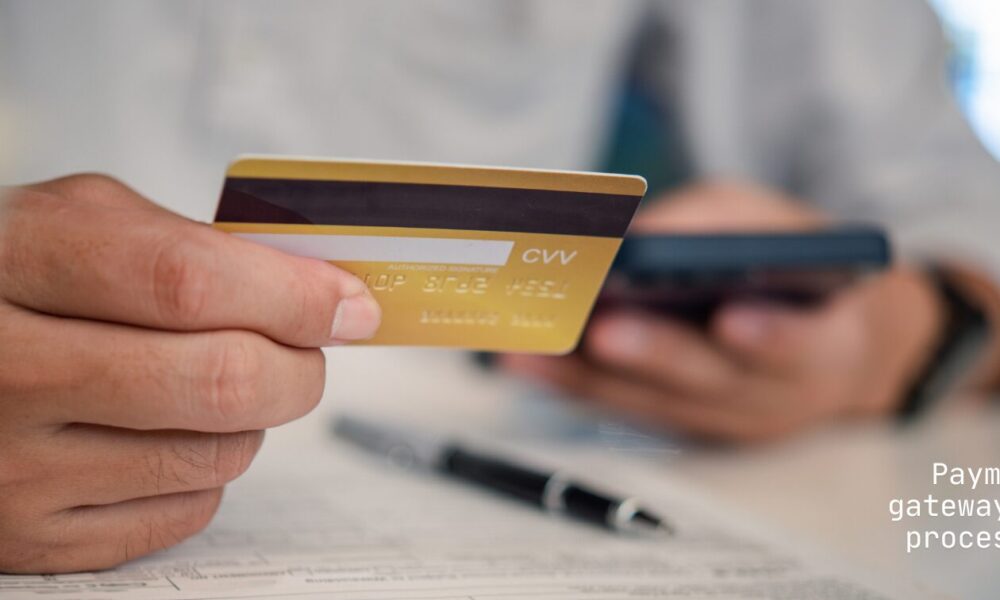Inside Payment Gateways and Processors: Powering the Digital Economy

Payment gateways and processors are essential for facilitating online transactions. They play a crucial role in ensuring that money moves securely and efficiently from customers to businesses. This article explores how these systems work, their importance in the digital economy, and what the future holds for payment technologies. Understanding payment gateways and processors is vital for anyone looking to navigate the rapidly evolving landscape of digital payments.
Key Takeaways
- Payment gateways act as secure bridges, protecting sensitive data during online transactions.
- Payment processors manage the actual transaction process between banks and merchants.
- Choosing the right payment gateway and processor is crucial for any online business.
- The COVID-19 pandemic has accelerated the shift towards digital payments and e-commerce.
- Future trends indicate a rise in instant payment technologies and increased security measures.
Importance of Payment Gateways
In today’s world, payment gateways are essential for online shopping. They act as a secure bridge between customers and merchants, ensuring that transactions are safe and efficient. As more people choose to shop online, the role of these gateways has become even more significant. They help businesses accept payments easily, which is crucial for growth in the digital economy. Without them, many businesses would miss out on sales opportunities, especially as credit cards increasingly replace cash.
Key Features of Effective Payment Gateways
A good payment gateway must be reliable and fast. It should also offer various payment options, making it easier for customers to pay. Security is another key feature; effective gateways use encryption to protect sensitive information. This means that when customers enter their payment details, their data is kept safe from hackers. The best gateways also provide a smooth user experience, ensuring that customers can complete their purchases without any hassle.
Challenges Faced by Payment Gateways
Despite their importance, payment gateways face several challenges. One major issue is the risk of fraud, which can lead to financial losses for both businesses and customers. Additionally, as technology evolves, gateways must keep up with new security measures to protect against cyber threats. There is also the challenge of integrating with different payment methods and systems, which can be complex. As the digital economy continues to grow, payment gateways must adapt to these challenges to remain effective and secure.
Understanding Payment Processors
Functions of Payment Processors
Payment processors are the unsung heroes of online transactions. They step in after you enter your payment details, acting as a bridge between your bank and the merchant’s bank. When you make a purchase, the processor checks if your payment is valid and if you have enough money in your account. This behind-the-scenes work is crucial for ensuring that your transaction goes smoothly. Without payment processors, online shopping would be much more complicated and risky.
Difference Between Payment Gateways and Processors
While payment gateways and processors often work together, they serve different purposes. A payment gateway is like a secure digital bridge that collects and encrypts your payment information. It ensures that your data is safe as it travels to the payment processor. On the other hand, the payment processor is responsible for the actual transaction, verifying the details and transferring the funds. Understanding this difference is important for anyone involved in online payments, as both play vital roles in the process.
Security Measures in Payment Processing
Security is a top priority in payment processing. When you enter your credit card information, it is encrypted to protect it from hackers. Payment processors follow strict security standards, like PCI DSS, to keep your data safe. This is similar to having a strong lock on your front door; it helps keep your personal information secure. As digital payments continue to grow, the importance of robust security measures cannot be overstated. The evolution of fintech highlights the need for secure payment systems, ensuring that both consumers and businesses can trust the digital economy.
How Payment Gateways Work
Initiation of Transactions
The journey of a payment gateway begins when a customer decides to make a purchase online. As soon as they enter their payment details, the gateway activates, ready to manage the transaction securely. It acts like a digital cashier, ensuring that the process is smooth and efficient.
Encryption and Data Security
Once the payment information is entered, the gateway encrypts this sensitive data. This means it transforms the information into a secure code, protecting it from potential cyber threats. This encryption is crucial for keeping the customer’s details safe as they travel across the internet.
Authorisation and Verification
After encryption, the payment details are sent to the payment processor. Here, a vital verification step occurs. The processor checks with the banks to confirm that the payment information is correct and that there are enough funds available. This step is essential to ensure that the transaction is legitimate and can proceed.
Completion of Transactions
Once the banks approve the transaction, the payment processor finalises it. The funds are then transferred from the customer’s account to the merchant’s account. Both the customer and the merchant receive notifications confirming that the payment has been successfully processed, marking the end of the transaction journey. This entire process highlights the importance of payment gateways in facilitating secure and efficient online transactions, making them a key player in the digital economy.
Integrated Payment Solutions
Benefits of End-to-End Payment Solutions
Integrated payment solutions are essential for businesses looking to streamline their financial transactions. By using a single platform, companies can manage all their payment needs without the hassle of juggling multiple systems. This not only saves time but also reduces costs associated with managing different vendors. An end-to-end solution simplifies the payment process, allowing businesses to focus on their core activities while ensuring that transactions are handled efficiently. The convenience of having everything in one place enhances the overall user experience, making it easier for both businesses and customers to navigate the payment landscape.
Simplifying Global Transactions
In today’s interconnected world, businesses often operate across borders. Integrated payment solutions play a crucial role in simplifying global transactions. They enable companies to accept various currencies and payment methods, making it easier for customers from different regions to make purchases. This flexibility is vital for businesses aiming to expand their reach and cater to a diverse clientele. Moreover, integrated systems can help manage currency conversion and compliance with local regulations, further easing the burden on businesses operating internationally.
Case Study: Unlimit
A prime example of an effective integrated payment solution is Unlimit. This platform offers a comprehensive suite of services that cater to the needs of businesses looking to enhance their payment processes. By providing a seamless experience from initiation to completion, Unlimit allows companies to handle transactions with confidence. The platform’s ability to integrate various payment methods and currencies demonstrates the potential of integrated solutions in transforming how businesses operate. As companies continue to embrace digital transformation, solutions like Unlimit will be at the forefront, driving efficiency and innovation in the payment sector.
The Future of Payment Systems
Trends in Payment Technologies
The landscape of payment systems is rapidly evolving, driven by technological advancements and changing consumer expectations. As more people embrace digital solutions, the demand for instant payments is growing. This shift is not just about speed; it’s about creating a seamless experience for users. Payment systems are becoming more integrated, allowing for smoother transactions across various platforms. The rise of digital wallets and contactless payments is reshaping how we think about money, making transactions quicker and more convenient than ever.
Impact of Instant Payments
Instant payments are revolutionising the way we conduct financial transactions. With the ability to transfer funds in real-time, consumers and businesses alike are experiencing a new level of efficiency. This technology is breaking down barriers between different payment types, enabling a more fluid exchange of money. As a result, the velocity of money circulation is increasing, which can have a positive impact on economic growth. The convenience of instant payments is also encouraging more people to engage in online shopping and digital transactions, further driving the digital economy.
The Role of Central Banks in Payment Systems
Central banks are playing a crucial role in shaping the future of payment systems. They are not only overseeing the stability of these systems but also promoting innovations that enhance security and efficiency. By implementing regulations and standards, central banks ensure that payment systems remain robust and trustworthy. Their involvement is essential in fostering a secure environment for digital transactions, which is vital for maintaining public confidence in the financial system. As we move forward, the collaboration between central banks and payment service providers will be key to navigating the challenges and opportunities in the evolving payment landscape.
Choosing the Right Payment Gateway and Processor
Criteria for Selection
When selecting a payment gateway and processor, it’s essential to consider several factors. First, you need to ensure that the gateway can handle various payment methods, as customers prefer different options. Additionally, look for a provider that offers robust security features to protect sensitive information. This is crucial in today’s digital landscape, where data breaches are common. Also, consider the fees associated with each service, as these can vary significantly and impact your overall costs.
Evaluating Security Features
Security is paramount when it comes to payment processing. A reliable payment gateway should use encryption technologies to safeguard customer data during transactions. It’s also important to check if the provider complies with industry standards, such as PCI DSS, which ensures that they meet the necessary security protocols. This compliance acts like a strong lock on your front door, keeping your information safe from potential threats.
Scalability and Reliability
As your business grows, your payment processing needs may change. Therefore, it’s vital to choose a payment gateway and processor that can scale with your business. Look for solutions that can handle increased transaction volumes without compromising performance. Reliability is also key; you want a system that operates smoothly, ensuring that transactions are processed quickly and efficiently. A dependable service can help maintain customer trust and satisfaction, which is essential for long-term success in the digital economy.
The Impact of COVID-19 on Digital Payments
The COVID-19 pandemic has significantly changed how we handle money, pushing many people towards digital payments. As shops closed and people stayed at home, online shopping became the norm. This shift led to a huge increase in e-commerce, with reports showing a remarkable rise in global digital sales. Consumers found the ease and convenience of shopping online hard to resist, which has set a new standard for how we buy things.
With the rise of digital payments, cash usage has dropped sharply. Many people now prefer using e-wallets and instant payment methods instead of cash. This change in habits is likely to last, as more people have become accustomed to the speed and safety of digital transactions. Businesses that were slow to adapt to this new reality risk losing customers and revenue.
The pandemic has also highlighted the importance of security in online transactions. As more people shop online, the need for safe payment systems has become crucial. Companies must ensure that their payment gateways are secure to protect customers’ information and build trust. This focus on security is essential for the future of digital payments, as consumers will only continue to shop online if they feel safe doing so.
COVID-19 has accelerated the shift towards digital payments, changing consumer behaviour and pushing businesses to adapt quickly. The future of payments will likely be shaped by these changes, with a greater emphasis on convenience, security, and the use of technology in financial transactions.
Conclusion
Payment gateways and processors are essential for the smooth running of online transactions in today’s digital world. They work together to ensure that your payment details are safe and that money is transferred quickly and securely. As more people shop online, the importance of these systems will only grow. Businesses must choose reliable partners to keep up with the changing landscape of digital payments. Understanding how these systems work can help businesses thrive in the digital economy, ensuring they meet customer needs and stay competitive.

Source: Inside Payment Gateways and Processors: Powering the Digital Economy




